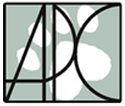Surgery Expectations
What to Expect for Your Pet’s Surgery / Procedure / Drop-Off
Thank you for entrusting your pet’s care to the staff at Appanasha Pet Clinic!
Preparing for the procedure:
- A pre-surgical/pre-procedure link has been sent to you. This form must be completed in full, signed, and submitted 48 hours prior to the scheduled surgery/procedure date.
- Let us know if an estimate is needed for your pet’s procedure.
- An up-to-date Rabies vaccine is required.
Day of the procedure:
- DO NOT offer food after 10 pm the night before the procedure. NO breakfast. Water is okay.
- If your pet is on daily medication, unless otherwise stated by your DVM, please give medication as directed. Medication can be given with a tiny bit of food, if needed.
- Please drop off your pet between 7 and 7:45 AM the morning the day of his/her procedure. Please allow 15 minutes for the check-in process. The procedure order is determined after your pet is dropped off. Your pet will remain here for most of the day, please schedule accordingly.
- Please let the staff know if any medication refills are needed at drop off or if there are any other concerns that need to be addressed.
- The Doctor will perform a full physical on your pet prior to the procedure.
- Pre-anesthetic blood work will be run prior to the procedure, where applicable. The Doctor will contact you immediately if any concerning abnormalities are discovered. Pre-anesthetic blood work includes an assessment of blood sugar, kidney values, liver values and protein levels and is always recommended. Knowing these values prior to anesthesia is helpful in determining anesthetic risk and helps determine the medications that will be used. For patients 7 + years old, this blood work is required if not done within the last 6 months.
The Procedure:
- Your pet will be given an intramuscular pre-medication injection, either prior to full general anesthesia or as a sole agent for sedation.
- Intravenous catheter placement is required for most pet’s procedures. IV catheters allow for IV access in case of emergency, allows easier IV medication administration and allows IV fluids to be given to keep the pet hydrated during the procedure. A small area of hair will be shaved at the site of the catheter placement. IV catheters are optional for feline castrations and sedation only procedures.
- If the procedure warrants full general anesthesia, your pet will be given intravenous medication and inhalant anesthetics. An endotracheal tube will be inserted into your pet’s trachea to keep their airway open, provide oxygen supplementation, and provide inhalant anesthesia. Some coughing or irritation is normal following removal of the endotracheal tube.
- A Veterinary Technician and Veterinary Technician Assistant will be monitoring your pet’s ECG, heart rate, respiratory rate, oxygen saturation, blood pressure, carbon dioxide levels, and temperature throughout the procedure.
Following the procedure:
- Your pet will be housed in a comfortable kennel where the technician staff can monitor them closely. Your pet will be taken outside for bathroom breaks (dogs) or be provided a litter box (cats) if staying the whole day. We make every effort to ensure your pet is comfortable during their stay at our clinic, including classical music, warm blankets and heated kennels floors to maximize your pet’s comfort as they recover.
- A Doctor or Technician will be contacting you via a phone call after the procedure is complete (usually by the afternoon) to discuss findings, give discharge instructions, and schedule a discharge/pick up time for later in the day. Some procedures require overnight stays. Please be available by phone throughout the day.
- Payment is due at time of service. To learn more about Care Credit as a payment option, follow the link to their site here: This will be collected either over the phone prior to pick up or at the scheduled discharge time.
- The latest pick-up time from any surgical appointment is 5:45pm.
Once back home from the procedure:
- Most pets go home the same day as the procedure, unless otherwise stated by your Doctor. During your pet’s recovery, it’s not unusual to see lethargy, inappetence, pacing or whining the evening of the procedure. Typically, these are normal secondary effect of anesthesia and they should be back to normal by the next day.
- You will be provided a written, detailed discharge instruction sheet that includes the details of any go home medication, diet, exercise restrictions, and recheck times. Please review this instruction sheet once home after the procedure.
- Please only offer your pet ¼ of their normal amount of food the evening of the procedure. It is not unusual for your pet to have a decreased appetite the evening of the procedure. If your pet doesn’t eat by the afternoon the following day, please call us.
- Your pet’s eyes were lubricated during the procedure to prevent dry eye. It’s normal to see glossy eyes and some eye discharge the evening of the procedure.
- Please keep your pet’s exercise restricted the evening of the procedure. Your pet may still be mildly sedated and should avoid stairs and jumping. Please keep them on a short leash while outside where they can be monitored. Please follow any additional go home restrictions listed on the discharge sheet.
- It is normal for your pet to not have a bowel movement for 1-3 days following the procedure but please call if your pet is not eating, having diarrhea, or is straining to defecate.

